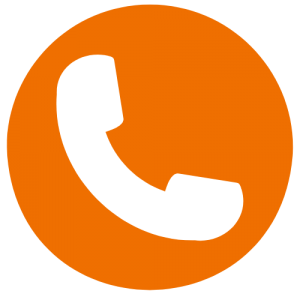Upper Dauphin Area Health Services
Contact Information
 High School Nurse:
High School Nurse:
……….Kristin Zigner
 Phone: 717-362-6489
Phone: 717-362-6489
 Middle School Nurse:
Middle School Nurse:
……….Martha Ryan
 Phone: 717-362-6575
Phone: 717-362-6575
 Elementary Nurse:
Elementary Nurse:
……….Brittani Lubold
 Phone: 717-362-6575
Phone: 717-362-6575
Health Assesments
The Pennsylvania Department of Health mandates health screenings for all students in grades K – 12.
Dental Inspection: Grades K, 3, 7 and new students
Hearing: Grades K, 1, 2, 3, 7, 11, and new students
Height and Weight: All grades. BMI is calculated and all parents are notified by letter.
Vision: K, 1, 2, 3, 4, 5, then every two years until graduation
Color Vision: On entry to school and as necessary
Stereo/Depth Perception: Grades K, and new students
Physical Exams: Grades K, 6, 11 and new students who were not examined in the appropriate lower grade
Printable Physical Exam Form
Printable Dental Exam Form
Student Medication
Delivery and Storage of Medications
All medication shall be brought to the nurse’s office, or the main office if the nurse is in another building, by the parent/guardian or by another adult designated by the parent/guardian. All medication shall be stored in the original pharmacy-labeled container and kept in a locked cabinet designated for storage of medication.
Medications that require refrigeration shall be stored and locked in a refrigerator designated only for medications. The district shall not store more than a thirty-day supply of an individual student’s medication.
Medication should be recorded and logged in with the date, name of student, name of medication, amount of medication, and signatures of the parent/guardian or designated adult delivering the medication and the school health personnel receiving the medication.
Nonprescription medication must be delivered in its original packaging and labeled with the student’s name.
Prescription medication shall be delivered in its original packaging and labeled with:
- Name, address, telephone and federal DEA (Drug Enforcement Agency) number of the pharmacy.
- Student’s name.
- Directions for use (dosage, frequency and time of administration, route, special instructions).
- Name and registration number of the licensed prescriber.
- Prescription serial number.
- Date originally filled.
- Name of medication and amount dispensed
- Controlled substance statement, if applicable.
All medication shall be accompanied by a completed Medication Administration Consent and Licensed Prescriber’s Medication Order Form, or other written communication from the licensed prescriber.
Disposal of Medications
Procedures shall be developed for the disposal of medications consistent with the Department of Health Guidelines, which shall include:
- Guidelines for disposal of contaminated needles or other contaminated sharp materials immediately in an appropriately labeled, puncture resistant container.
- Processes for immediately returning to parents/guardians all discontinued and outdated medications, as well as all unused medications at the end of the school year.
- Methods for safe and environmentally friendly disposal of medications.
- Proper documentation of all medications returned to parents/guardians and for all medications disposed of by the Certified School Nurse or other licensed school health staff. Documentation shall include, but not be limited to, date, time, amount of medication and appropriate signatures.
Student Self-Administration of Emergency Medications
Prior to allowing a student to self-administer emergency medication, the district shall require the following:
- An order from the licensed prescriber for the medication, including a statement that it is necessary for the student to carry the medication and that the student is capable of self-administration.
- Written parent/guardian consent.
- An Individual Health Plan including an Emergency Care Plan.
- The nurse shall conduct a baseline assessment of the student’s health status.
- The student shall demonstrate administration skills to the nurse and responsible behavior.
The nurse shall provide periodic and ongoing assessments of the student’s self-management skills. The student shall notify the school nurse immediately following each occurrence of self-administration of medication.
Students shall demonstrate a cooperative attitude in all aspects of self-administration of medication. Privileges for self-administration of medication will be revoked if school policies regarding self-administration are violated.
